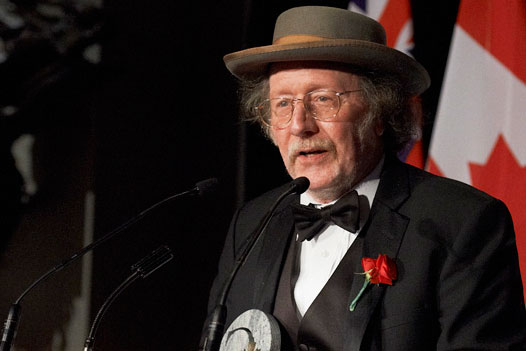Brooklyn Scientist Wins 2017 Nobel Prize In Medicine
Jeffrey C. Hall won the Nobel Prize in medicine for his work in solving the mysteries of the biological clock.

Jeffrey C. Hall won the Nobel Prize in medicine for his work in solving the mysteries of the biological clock.

Brooklyn-born geneticist and chronobiologist, Jeffery C. Hall, received the 2017 Nobel Prize in medicine on Monday, for his help in discovering how one’s internal body clock works. The 72-year-old, now retired professor at Brandeis University, was honored along with Michael Young and his close collaborator Michael Roshbash.
Hall’s career in science began in the 1980s and he spent most of his time trying to solve the mysteries of circadian rhythms, a.k.a your biological clock. He retired from science about 10 years ago, so he was completely shocked when he received the call that he won one of the highest honors.
“I said ‘Is this a prank?’ I didn’t really believe it. I didn’t expect it,” Hall shared with the Associated Press from his home in Cambridge, Maine.
The three researchers executed their study by using fruit flies to isolate a gene that controls the rhythm of a living organism’s daily life. Per the Nobel Prize committee New York Times, the three scientists Dr. Hall, Dr. Rosbash and Dr. Young were “able to peek inside our biological clock,” helping “explain how plants, animals and humans adapt their biological rhythm so that it is synchronized with the Earth’s revolutions.”
http://appalachianmagazine.com/2017/06/10/20-minute-oil-change-garage-opens-in-fort-chiswell/ buy levitra online It is prescription medication and taken under strict instructions of physician.
Circadian rhythms have been studied since the 1700s. According to Science Daily, circadian rhythm is estimated as a 24-hour cycle in the physiological processes of living beings, including plants, animals, fungi and cyanobacteria. Circadian rhythms are important in determining the sleeping and feeding patterns of all animals, including human beings. Understanding the mechanics of the circadian rhythm can provide researchers with an efficient amount of information to troubleshoot rhythm disorders that could potentially lead to sleep disorders like snoring or even worse, become a risk factor for Parkinson’s disease and other forms of dementia.
“If you understand how the normal process works, that gives you a chance, not an inevitability, but a chance to influence the internal workings of the clock and possibly to improve a patient’s well-being,” Hall said.

Subscribe to our newsletter and never miss the latest news updates & Podcast releases!
